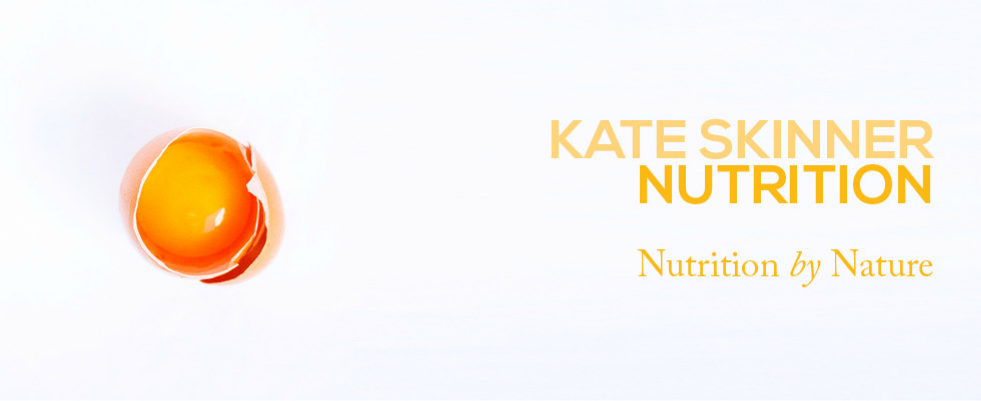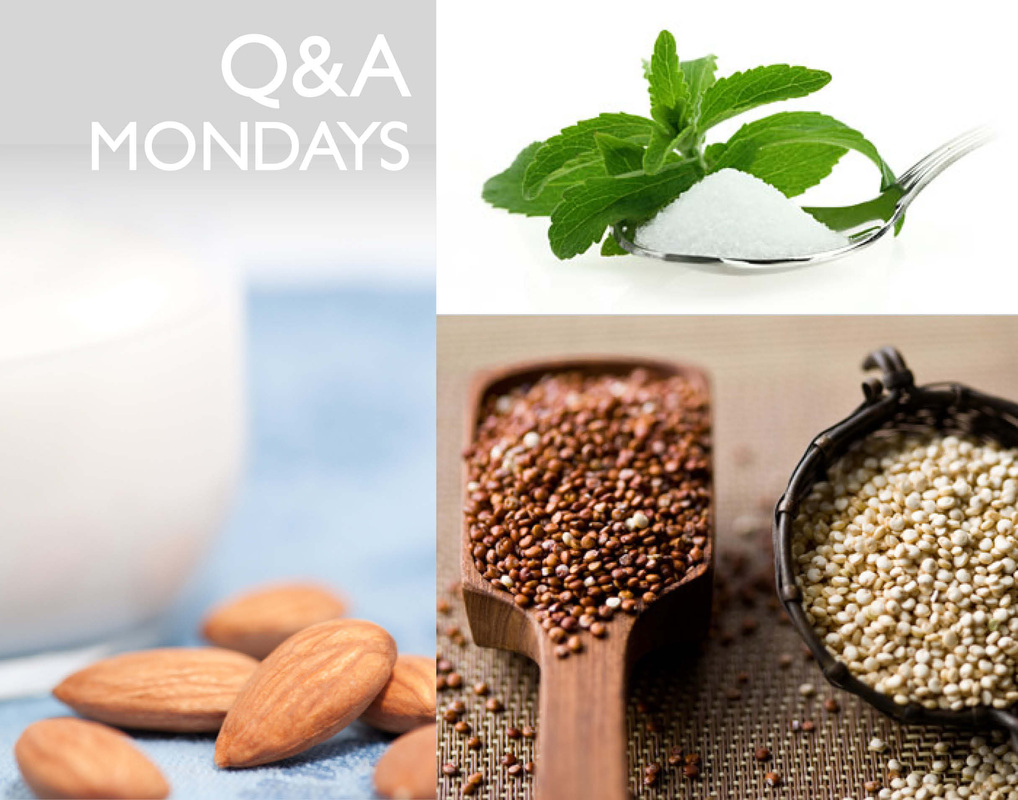This week's questions tackle some darlings of the health food industry - quinoa, almond milk and stevia. Are they really all they're cracked up to be?
Stevia is a naturally sweet herb that is lauded by anti-sugar proponents for having “no effect on blood sugars”.
In actual fact, stevia may cause hypoglycaemia by tricking the body into thinking it's receiving sugar when it’s not (just as artificial sweeteners do), perpetuate blood sugar dysregulation and increase hunger.
Here’s how it works:
Stevia is “sweet” on the palate, so the body assumes it is receiving sugar and primes itself to do so. Glucose is cleared from the bloodstream and blood sugars drop, but no real sugar/glucose is provided to the body to compensate. When this happens, adrenaline and cortisol surge to mobilize sugar from other sources (liver and muscle glycogen, or protein, or body tissue) to bring blood glucose back up.
The whole process is stressful to the body. We don’t want to be relying on raising blood sugar at the expense of skin health, muscle mass and immune function. Since we want to be avoiding increasing stress hormones (for many reasons, but they are inflammatory, strongly linked to weight gain, low thyroid function, insulin resistance and other health problems), avoiding hypoglycemia is really important for increasing and maintaining overall health.
Stevia is step up from artificial sweeteners, for sure, but I’d stick to the real thing (ie real fruit sugars, honey, sweet root vegetables, milk sugars and other forms of natural sugars).
Yes, quinoa is technically not a grain, it's a psuedograin or a "grain-like seed". It contains similar anti-nutrients to, and has a similar detrimental effect on the gut as (whole)grains (read more about the "healthy wholegrains" myth in this post). If you're trying to eat grain-free you can technically claim the pseudograin-loophole, but honestly, if it looks like a duck, quacks like a duck...
Having said that, I really don't think it's necessary to cut grains out completely, especially in the context of an overall nutrient-dense diet that's generally low in PUFA (polyunsaturated oils - more about them in a minute). If they're not displacing other foods, or making up the bulk of your diet, you're probably OK. Best choices aren't in fact wholegrains (that are full of anti-nutrients, phytates, lectins, excessive amounts of fibre and other irritants), but are more refined or appropriately-treated grain products such as well-soaked and cooked oats, real sourdough bread, white rice and masa harina. The refining/soaking/souring processes all render such grains and grain products fairly benign, and much more digestible - consuming them alongside good saturated fat and protein is better again (buttered sourdough with eggs, rice with stew, etc).
In the aftermath of soy's timely fall from grace (read here), people seemed to pounce on almond milk as a "healthy" alternative to soy milk and dairy milk.
Firstly, I whole-heartedly believe that quality dairy plays a valuable role in the diet, but I realise that some people don't tolerate it well (although there's an interesting theory that lactose or other dairy intolerance may be ameliorated by fixing metabolic health and by correcting a thyroid deficiency - more on that another time). The problem with almond milk as a dairy alternative is not necessarily it's lack of good nutrients like calcium and quality protein (although this is certainly a downside) - it is its high concentration of polyunsaturated fats (PUFA). I've written about this many times before, so I won't rehash the issue in detail here - instead I'd encourage you to read this post for more about the damaging effects of PUFA in the modern diet. While you're at it, perhaps also read this post on the pitfalls of nuts and seeds.
Better cow's milk alternatives (if you really can't tolerate cow's milk) are goat's, sheep's, and coconut milk and milk products.
Basically, the red tub (just 'gelatin') is the type of gelatin most people would be used to working with - it needs to be dissolved in hot water or other liquid before use in jellies, marshmallows, sauces and other dishes. The green tub ('collagen hydrolysate') is a hydrolyzed form of gelatin that handily is soluble in both cold and hot liquids - but it's designed not to 'gel'. Both are good stuff - it depends on what you'll use it for. For ease-of-use in cold smoothies and for mixing into fresh orange juice as a daily supplement, go for the collagen hydrolysate, whereas for use in jellies, panna cotta, marshmallows and gravies, the regular (red) will be best.
Update from a reader (thanks for chiming in!): the hydrolysate definitely does not work in marshmallows and jellies, so if you're buying gelatin to make these delightful treats, choose regular (red).
Fire through questions for next Monday’s post to [email protected]. Thanks!
Kate is a certified Clinical Nutritionist and offers one-on-one coaching for clients in Sydney Australia, and internationally via Skype or email. Visit the nutrition services page to find out more about private coaching, and be sure to subscribe via email and follow the Nutrition by Nature Facebook page for blog updates, articles, nutrition tips, recipes and special offers.


